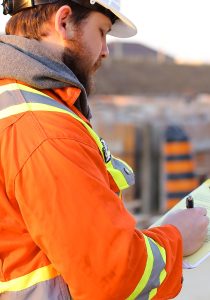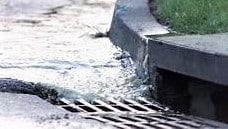Municipal Stormwater Inspector Certification Guide
Intro
In the realm of public works, managing stormwater effectively is critical to safeguarding our communities and the environment. With increasing urban development, the role of a Municipal Stormwater Inspector has never been more vital. These professionals ensure compliance with stormwater management plans, mitigating the impact of runoff and maintaining the health of local waterways. In this guide, we’ll delve into the path toward becoming a certified stormwater inspector, exploring the certification process, training programs, and career prospects. Municipal Separate Storm Sewer Systems (MS4s) Permits apply to certain municipal storm sewer systems.
Introduction to Stormwater Management
Stormwater management deals with the control and utilization of runoff caused by rain or snowmelt. In urban settings, impervious surfaces such as roads, rooftops, and parking lots increase the volume and speed of stormwater runoff. This surge in runoff can lead to issues like erosion, flooding, and the transportation of pollutants into water bodies. Municipalities address these challenges by implementing Stormwater Management Plans (SWMP), which include strategies for Erosion and Sedimentation Control, public education, and pollution prevention.
Effective stormwater management involves the integration of various techniques to minimize the negative impacts of runoff. These can range from structural measures like retention basins and green infrastructure to non-structural approaches such as regulatory policies and community outreach. Inspectors play a crucial role in ensuring that these plans are followed, performing tasks like site inspections, compliance checks, and public education. They are also responsible for maintaining the Municipal Separate Storm Sewer System (MS4), ensuring it functions properly to prevent flooding and reduce pollutant loads in waterways. Safely managing stormwater is critical to preventing contaminants, including untreated sewage, from polluting.

In addition, stormwater inspectors work closely with construction site managers to enforce best management practices (BMPs) that control erosion and prevent sedimentation. This collaboration is essential in preventing soil displacement and sediment from contaminating local streams and rivers. By adhering to well-crafted SWMPs, municipalities can effectively manage stormwater, mitigate environmental impacts, and promote healthier, more resilient communities.
The Role of a Municipal Stormwater Inspector
Municipal Stormwater Inspectors ensure that stormwater management regulations are strictly adhered to within their designated areas. They conduct inspections at construction sites to verify compliance with erosion control measures and best management practices (BMPs). Inspectors also respond to and investigate stormwater-related complaints from the public, providing education on proper stormwater management practices.
A significant part of their role involves maintaining and monitoring the Municipal Separate Storm Sewer System (MS4). This includes checking for proper functioning, preventing pollutant discharges into local waterways, and ensuring both federal and local standards are met. Inspectors work closely with construction site managers to enforce BMPs and mitigate potential issues such as soil erosion and sediment displacement.
Qualified stormwater inspectors (QSI or QCSI) are equipped to identify and address problems before they escalate into environmental hazards. They perform detailed site inspections, compliance checks, and regularly update stormwater management plans to reflect current regulations and best practices. Inspectors also play an educational role, informing the community and stakeholders about effective stormwater management techniques.
In addition to fieldwork, stormwater inspectors often collaborate with other municipal departments and agencies to develop and implement policies aimed at improving stormwater quality. Their expertise is crucial in creating resilient urban environments capable of handling increased runoff and minimizing environmental impacts. Through diligent oversight and proactive management, municipal stormwater inspectors contribute significantly to public health and environmental sustainability.
Certification Requirements and Prerequisites
To pursue certification as a stormwater inspector, candidates generally need a high school diploma or GED. However, some roles may require further education in fields like environmental science or engineering. Relevant experience in construction, public works, or environmental compliance can also be advantageous. Certification programs vary by state, typically involving a comprehensive exam that assesses knowledge of stormwater regulations, inspection techniques, and best management practices (BMPs).
Candidates should thoroughly research their specific state requirements, as prerequisites and certification processes can differ significantly. Some states may require coursework or training hours before allowing candidates to sit for the certification exam. Additionally, certifications often mandate a mix of classroom learning and hands-on field training to ensure inspectors are well-prepared for real-world scenarios.

Key competencies tested during the certification process often include MS4 compliance, erosion control measures, and pollution prevention strategies. Candidates may benefit from participating in study groups, online forums, and review courses offered by professional organizations. These resources can provide valuable insights and help candidates grasp complex topics more effectively.
Given the evolving nature of stormwater regulations, staying informed about changes and updates is crucial. Networking with industry professionals and joining relevant organizations can also provide ongoing support and information that may be essential for both certification and long-term success in the field.
Continuing Education and Recertification
Staying current with evolving regulations and best practices in stormwater management is essential for certified inspectors. Continuing education ensures that inspectors remain knowledgeable about new technologies, regulatory updates, and innovative solutions in the field. Most certification bodies require inspectors to earn a certain number of continuing education units (CEUs) every few years to maintain their credentials.
Inspectors can acquire CEUs through various means, such as attending workshops, seminars, and conferences focused on stormwater management. These events often feature industry experts who share insights on the latest trends and regulatory changes. Online courses and webinars also provide flexible learning options for professionals seeking to expand their knowledge.
In addition to formal education, participating in professional organizations offers opportunities for networking and professional growth. These groups frequently host events, publish industry journals, and provide resources that are valuable for ongoing education. Engaging with peers and experts through these channels can offer new perspectives and practical advice for addressing stormwater challenges.
Keeping an active membership in professional organizations and participating in continuing education activities can significantly enhance an inspector’s skills and career prospects. By remaining informed and proactive, inspectors can effectively contribute to the development and implementation of advanced stormwater management practices, ensuring compliance and promoting environmental sustainability in their communities. The Certified Municipal Stormwater Inspector certificate from the Stormwater Training Center is valid for 5 years.
Training Programs and Courses
Several organizations offer comprehensive training programs and courses tailored to prepare candidates for the stormwater inspector certification exam. These programs cover essential topics such as erosion control methods, pollution prevention, and the maintenance and management of stormwater systems. Training often combines theoretical classroom instruction with practical fieldwork, allowing participants to gain hands-on experience.
The Stormwater Training Center, for instance, provides courses that are specifically designed to meet regional regulatory requirements. These courses typically include in-depth modules on MS4 compliance, best management practices (BMPs), and inspection techniques. Local environmental agencies also offer training sessions that focus on the specific regulations and challenges relevant to their areas.

Many training programs offer flexible learning options, including online courses and weekend workshops, making it easier for working professionals to participate. These programs not only prepare candidates for the certification exam but also equip them with the skills needed for effective stormwater management in real-world scenarios.
Additionally, professional organizations and industry groups often host webinars, seminars, and continuing education courses. These events are excellent opportunities for aspiring inspectors to stay current with the latest developments in stormwater management and to network with industry experts. Participants can benefit from the shared knowledge and experience of seasoned professionals, gaining insights that can be crucial for both passing the certification exam and excelling in their future roles.
Exam Preparation Tips and Strategies
Effective preparation for the stormwater inspector certification exam requires a structured approach. Begin by thoroughly reviewing the study materials provided by your certifying body, paying close attention to key areas such as MS4 compliance and erosion control measures. Joining a study group can enhance your understanding through collaborative learning and discussion of complex topics.
Utilize online resources, such as practice tests and interactive workshops, to get familiar with the exam format and question style. Many organizations offer these tools to help candidates gauge their readiness and identify areas needing improvement. Taking timed practice exams can also help you manage your time effectively during the actual test.

Engaging in hands-on training sessions and fieldwork can provide practical insights that are invaluable for the exam. If possible, seek mentorship from experienced stormwater inspectors who can offer real-world perspectives and guidance. Attending webinars, seminars, and industry conferences can also keep you updated on the latest trends and regulatory changes, which may be covered in the exam.
Creating a study schedule and setting aside regular time for review can keep you on track. Focus on understanding core concepts rather than rote memorization, as the exam often tests applied knowledge. Utilize flashcards, study apps, and other tools to reinforce your learning.
Lastly, ensure that you are well-rested and composed on the day of the exam. Confidence and a clear mind can significantly enhance your performance.
Career Opportunities and Advancement
A career as a Municipal Stormwater Inspector offers numerous opportunities for professional growth and specialization. Inspectors may find employment with municipal governments, private consulting firms, state environmental agencies, or even nonprofit organizations focused on environmental protection. The increasing emphasis on sustainable urban development and compliance with stringent stormwater regulations has driven demand for qualified inspectors.
As inspectors gain experience, they can advance to senior roles such as environmental compliance managers or public works directors, where they oversee broader environmental and infrastructure projects. Specializing in areas like water quality analysis, erosion control, or urban planning can further enhance career prospects. Additionally, some inspectors may choose to transition into consulting roles, providing expert advice to municipalities and private developers on stormwater management practices.
Continuing education and professional development play crucial roles in career advancement. Attending industry conferences, participating in specialized training programs, and obtaining advanced certifications can make inspectors more competitive candidates for higher-level positions. Networking with peers and industry leaders through professional organizations also provides valuable opportunities for mentorship and collaboration.
The demand for skilled stormwater inspectors is expected to grow as municipalities strive to meet increasing regulatory demands and address climate change challenges. This expanding field offers a dynamic and impactful career path for those dedicated to safeguarding environmental health and enhancing community resilience.
Challenges and Best Practices in Stormwater Inspection
Stormwater inspectors face numerous challenges, including navigating a labyrinth of regulations, addressing diverse community concerns, and adapting to unpredictable weather conditions. Effective communication skills are essential for conveying complex regulatory requirements to construction managers and the public. Inspectors must also possess a keen attention to detail to identify and mitigate potential issues before they escalate.
Employing advanced inspection technologies, such as drones and GIS mapping, can enhance accuracy and efficiency in monitoring stormwater systems. Keeping abreast of the latest regulatory changes and industry trends is crucial for staying compliant and effective in this ever-evolving field. Building strong partnerships with local stakeholders, including municipal departments and environmental organizations, can facilitate smoother collaboration and more comprehensive stormwater management.
Regularly participating in continuing education and professional development opportunities helps inspectors stay informed about innovative solutions and best practices. Engaging with industry peers through professional organizations provides valuable networking opportunities and access to shared knowledge and resources.
By adopting a proactive approach, utilizing advanced tools, and fostering strong community relations, inspectors can overcome these challenges and contribute significantly to effective stormwater management.
Conclusion and Next Steps
Embarking on a career as a Municipal Stormwater Inspector offers a fulfilling opportunity to make a tangible impact on environmental health and community safety. After gaining a solid understanding of stormwater management principles and the certification process, the next step is to dive into hands-on training and coursework tailored to your region’s specific requirements. Engaging in training programs and certification courses from the Stormwater Training Center will not only prepare you for the certification exam but also provide you with practical skills necessary for the job.
Connecting with industry professionals through networking events, seminars, and professional organizations can provide invaluable insights and mentorship opportunities. Such interactions can help you stay updated on the latest trends and regulations in stormwater management, enhancing both your knowledge and professional growth. Additionally, continuing education and participation in workshops or webinars are essential for keeping your skills sharp and your certification current.
Once certified, explore various career opportunities in municipal governments, private consulting firms, or environmental agencies. With experience, you may advance to senior positions or specialize in areas like erosion control or urban planning. Staying proactive and engaged in professional development will pave the way for a rewarding career dedicated to promoting environmental sustainability and resilience in urban communities.

